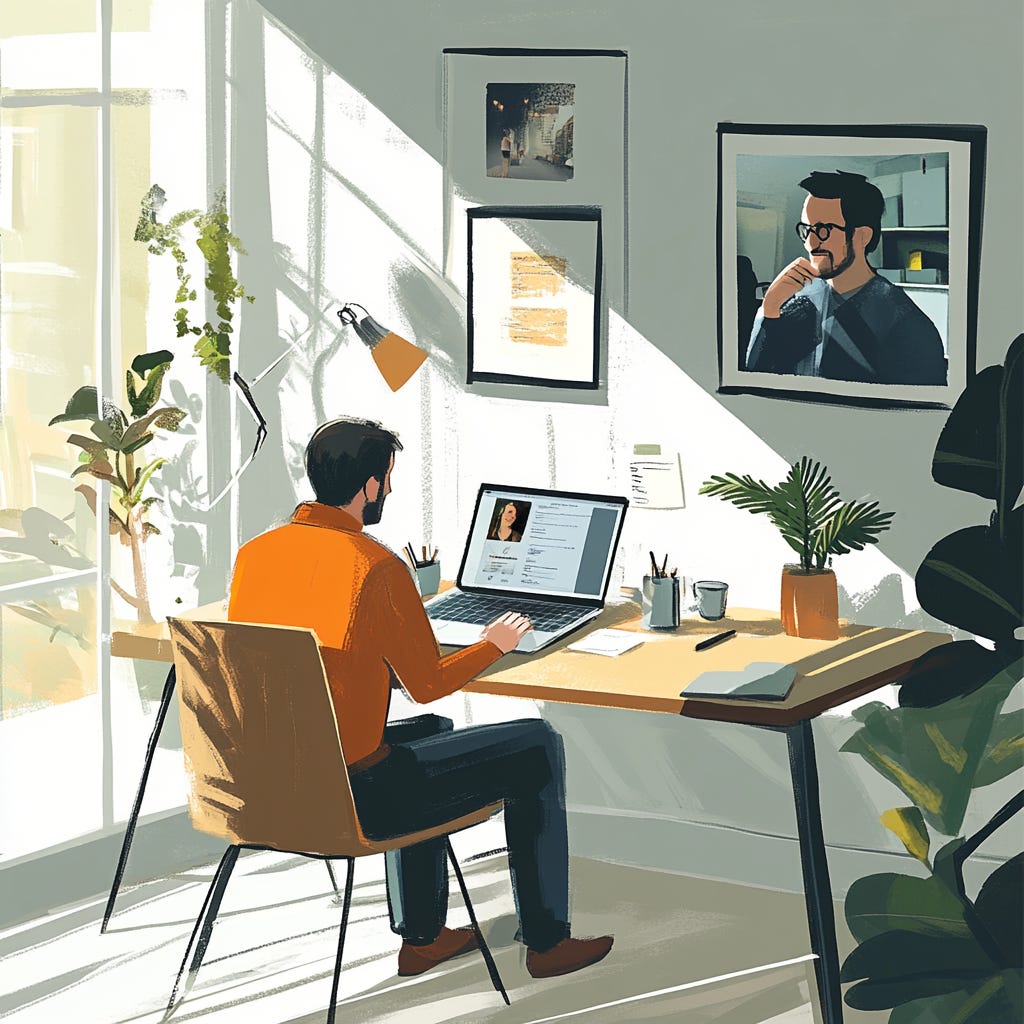Future of Work #1: "Hybrid Work 2.0: Beyond Location Flexibility"
More than just working from home - how hybrid work is changing what matters at work.
Remember before pandemics when hybrid work seemed radical? Now it's just work. But the real changes go deeper than your postcode.
The first wave of hybrid work focused on the "where" - home or office. The next wave will be about the "how" and "why" of work.
This shift is changing several critical areas of work life:
Time vs Output
The rules are changing. Working hours matter less than what you achieve.
Old thinking: "Sarah works 9-5, she must be productive."
New thinking: "Sarah delivered that project brilliantly. I don't care when she did it."
This isn't about sneaking off to watch Bargain Hunt. It's about trusting people to manage their energy, not just their time.
One software company I worked with stopped tracking hours entirely. They switched to measuring weekly outputs through a simple check-in system. Both quality and happiness improved.
Trust and Autonomy
When you can't see people working, you need to build trust differently.
Gone are the days when managers could just wander over to check what's happening. Now they need to focus on outcomes and clear expectations.
This requires a massive mindset shift for many leaders. Those clinging to control are struggling. Those embracing trust are thriving. Which one are you? (Well, you read my newsletter, so probably a thriving one, amirite?)
People would worry when I couldn't see their team. Now they focus on what they deliver, not where they sit. It's liberating for all of EVERYONE.
Meetings With Purpose
The days of gathering people just because it's Monday morning are dying.
Hybrid work forces us to justify every meeting. Is this worth dragging people to the office? Could this be an email? A quick call? A shared document?
Smart companies are creating clear guidelines:
What deserves in-person time
What works better remote
What isn't a meeting at all
Cut your meeting load by 60% by asking one question: "What decision needs to be made here?"
Connection Needs Intention
The casual chats by the coffee machine matter. But they don't happen naturally in hybrid settings.
Companies need structured ways to build connection:
Dedicated social time that isn't forced fun
Meaningful team days when people are together
Digital spaces for casual interaction
The best hybrid workplaces aren't trying to recreate office life online. They're designing new ways for people to feel connected to each other and their work.
Hybrid-First Tools
The tech stack matters more than ever. But it's not just about having video calls that work.
It's about:
Documentation that everyone can access
Asynchronous communication tools
Collaboration platforms that work equally well for everyone
This isn't just IT's problem. It's about creating work processes where no one feels like a second-class citizen based on location.
The Future Is Human, Not Just Hybrid
The most exciting part of this shift? Work is becoming more human.
People are being trusted rather than monitored. They're gaining control over their time and energy. They're judged by their contribution, not their presence.
The companies winning at hybrid work 2.0 understand a simple truth: this was never just about location. It was about fundamentally rethinking our relationship with work.
What matters isn't where your team sits. It's whether they feel valued, trusted and connected to purpose. Get that right, and location becomes just a detail.




